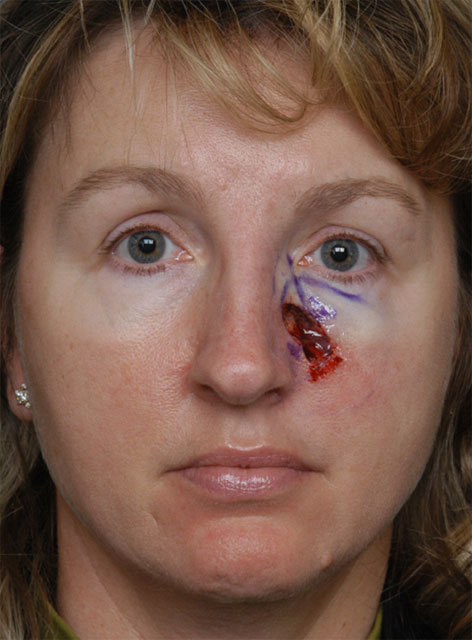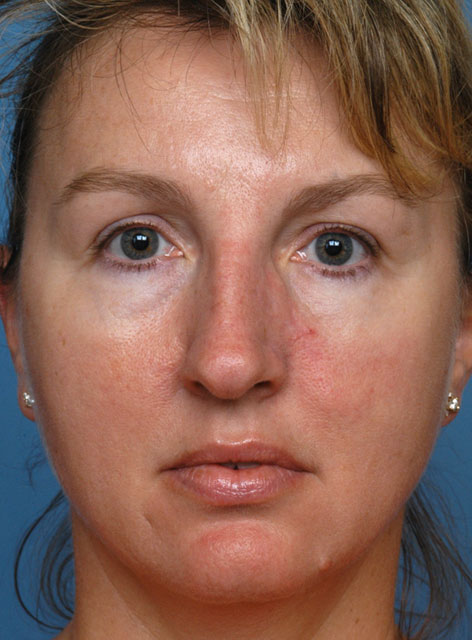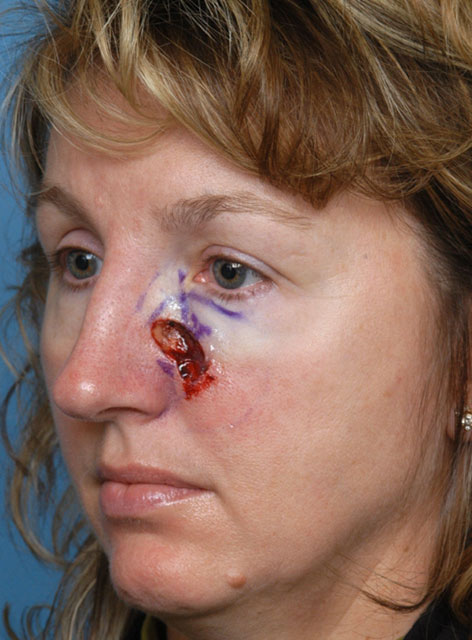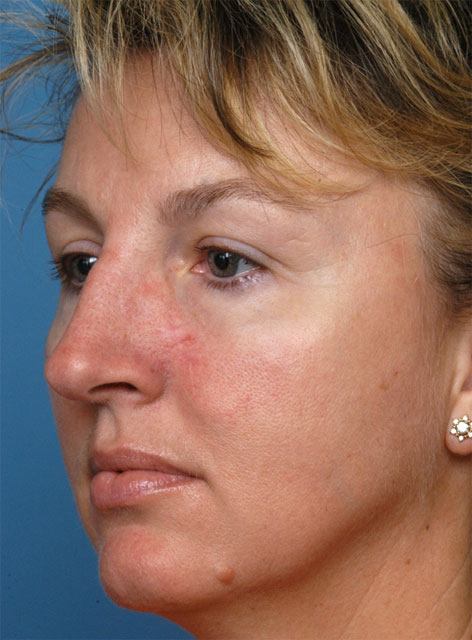Skin Cancer Reconstruction in Newport Beach and Beverly Hills
More than 1 million skin cancers are found each year. In SoCal and the rest of United States, the most common type of skin cancer is basal cell, followed by squamous cell, and melanoma. Melanoma accounts for less than 5% of skin cancer cases.
As a facial plastic and reconstructive surgeon, Dr. Batniji is an expert at the surgical treatment of facial skin cancers.
Dr. Batniji and his staff strongly believe in prevention of skin cancers. To this end, Dr. Batniji encourages all his patients to use a sunblock with proper SPF protection.
Why You May Need Skin Cancer Restoration
If you have been diagnosed with skin cancer, you may have to remove the cancerous growth in order to prevent further spread and to protect your health. Using specialized techniques and state-of-the-art tools and equipment, an experienced surgeon like Dr. Batniji can skillfully remove the cancerous growth, as well as other skin lesions.
We understand that a cancer diagnosis is not something that is easy to accept. It is life-changing news that no one wants to hear, which is why it is important to find a plastic surgeon who understands your concerns and worries.
Patients with concerning growths of the facial skin often consult with Dr. Batniji for further evaluation. If necessary, Dr. Batniji may recommend a biopsy of any facial skin growths that have irregular borders, bleed on occasion, have irregular color, and/or is new and rapidly growing.
When performing a biopsy, Dr. Batniji uses techniques to minimize scar formation. If the biopsy demonstrates a precursor to skin cancer, Dr. Batniji recommends a variety of treatment options, including skin resurfacing with laser. If the biopsy demonstrates a basal cell or squamous cell cancer, Dr. Batniji recommends surgical excision.
Depending upon the size and location of the cancer, Dr. Batniji may perform the excision of the lesion or refer the patient for Mohs micrographic excision of the skin cancer. In either case, Dr. Batniji utilizes his highly specialized skills to reconstruct the excision site to minimize scar formation and achieve a result that is natural in appearance.
What Are Your Options for Skin Cancer Reconstruction?
Whether you are a suitable candidate for skin cancer reconstruction and how well you respond to the procedure largely depends on the type of skin cancer you have been diagnosed with. In addition to this, the amount of skin and tissue around the cancerous growth that has to be removed also plays a role.
The most widely used and most effective treatment used on most types of skin cancer is Mohs surgery, where the cancerous tissue is removed and the loss of healthy tissue is also minimized.
Apart from Mohs surgery, other traditional methods of surgery for removing skin cancer may also be used. This depends on the type of skin cancer you have and other individual factors.
– Kara D., Laguna Beach, CA
Reconstruction of Skin Cancer photos
Recovery and Results
Your recovery depends heavily on how well you follow instructions that your doctor gives you to care for your wound. You may have to clean your wound regularly and apply topical medications.
During your recovery, redness, soreness and swelling are common and you shouldn’t panic if these develop. They will go away on their own eventually. Small amounts of fluid may also ooze out or drain from your incision sites.
Make sure that you are well rested and that you limit your movements. Don’t engage in strenuous physical activities until you are completely healed, and limit direct sun exposure as well. Only when your wound is completely healed will you be able to see the results of the reconstruction surgery.
If there is lymph node involvement and/or the cancer is a melanoma, Dr. Batniji will present your case to the Hoag Cancer Center Tumor Board. This meeting consists of experts in the field of Radiation Oncology, Medical Oncology, and Surgery. Dr. Batniji will discuss the recommendations from the Tumor Board and guide you through the treatment plan.
Cost
The cost of skin cancer reconstruction procedures vary depending on the amount of tissue removed, how long the procedure takes, and other individual factors.
Learn More About Skin Cancer Reconstruction
If you’d like to learn more about skin cancer reconstruction, contact the office of Dr. Rami Batniji for a consultation today. Dr. Batniji is a board-certified facial and reconstructive plastic surgeon who will be happy to answer any questions you may have about skin cancer reconstruction.





